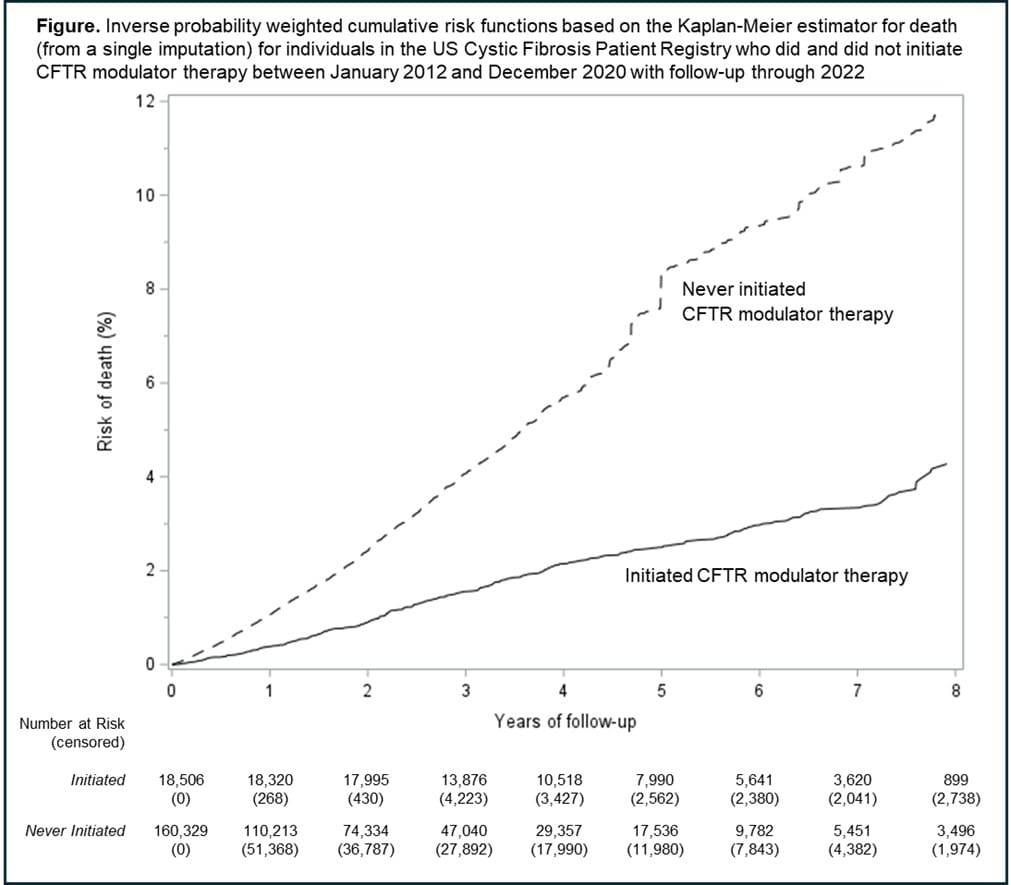Respiratory
CFTR modulator therapy improves 8-year survival for individuals with cystic fibrosis Katherine E. Kurgansky* Katherine Kurgansky Joseph M. Collaco Derek K. Ng Catherine Lesko
Background: To date clinical trials of cystic fibrosis transmembrane regulator (CFTR) modulator therapies have focused on pulmonary, nutritional, and quality of life outcomes that can be captured within relatively short follow-up periods. The effectiveness of CFTR modulators on survival has not yet been fully described.
Methods: We conducted a retrospective cohort study using data from the United States Cystic Fibrosis Foundation Patient Registry between 2012 and 2022. We included individuals who were eligible to receive an initial prescription for any CFTR modulator therapy (based on age and genotype of 2020 regulatory approvals and no prior use). At every clinic or telehealth visit we assessed eligibility and classified treatment status based on registry records. We included individuals in the analysis multiple times if eligibility was met at multiple visits. We followed individuals from each eligible visit until death (outcome), lung transplantation, loss to follow-up, or administrative censoring. We censored untreated observations if they later initiated a CFTR modulator. We estimated 8-year risk curves for each treatment group using Kaplan-Meier and hazard ratios from Cox regression models. We used inverse probability of treatment weighting to balance baseline covariates between treatment groups and inverse probability of censoring weights to account for non-random censoring.
Results: We included 25,103 individuals who attended 178,835 clinic or telehealth visits and were eligible to receive a prescription for CFTR modulator therapy; 18,056 initiated therapy. The 8-year risk of death for initiating a CFTR modulator compared to not initiating was -7.2% (95% CI: -9.6,-4.9) (full risk curves presented in Figure). The overall hazard for death over 8 years was 66% lower after CFTR modulator initiation (HR=0.34; 95% CI:0.28,0.41).
Conclusions: Over an 8-year period, CFTR modulator therapy initiation reduces the risk of death among people living with cystic fibrosis.

